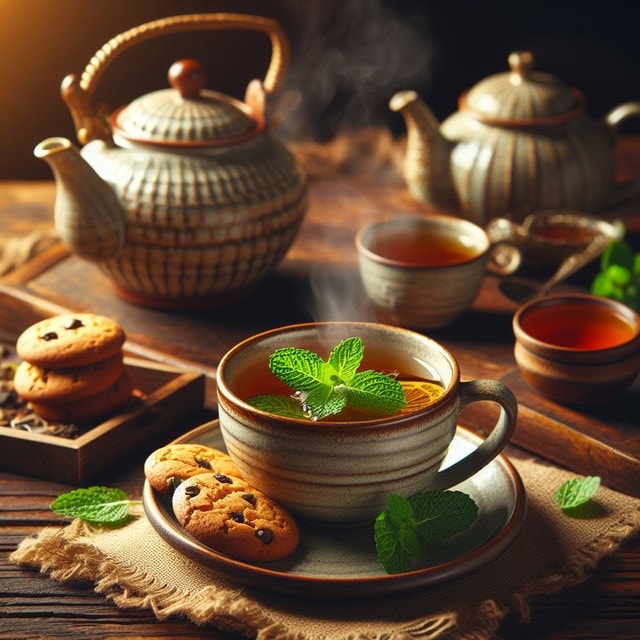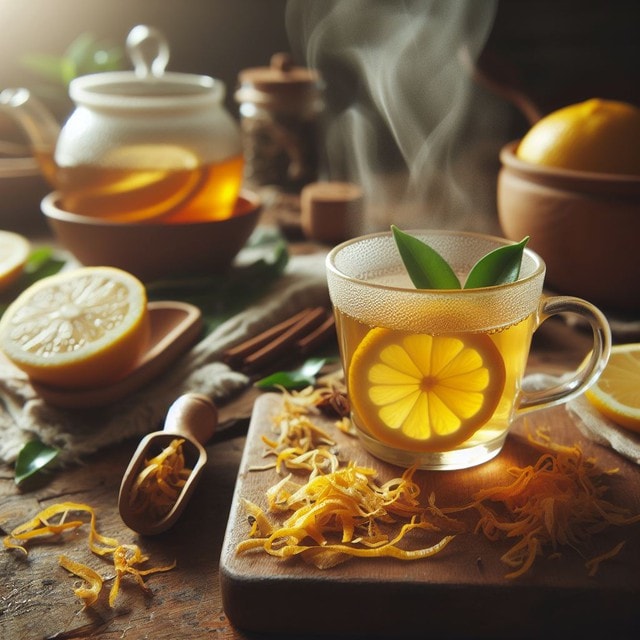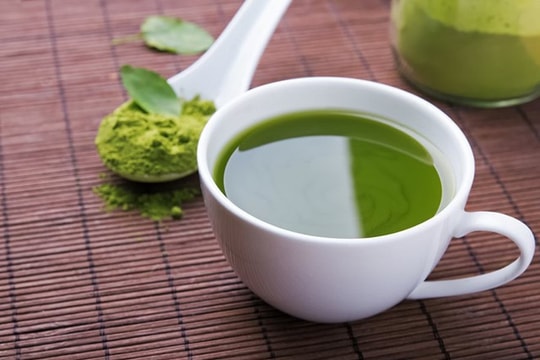Variations you should and should not add to tea
Tea is a healthy beverage for most people. There are many "variations" to enhance the flavor of tea, but according to nutritionists, there are things that make tea better, better, and there are things that make tea worse.
Tea is a healthy beverage on its own, but what you add to it can make it taste better or worse. Here are the best and worst things to add to your cup of tea.
3 things you should not add to tea
Salt
While salt may be beneficial in balancing the bitterness of tea, from a health perspective, nutritionists recommend not adding a pinch of salt to your tea to reduce the risk of exceeding the 2,300 mg of sodium you consume per day. Therefore, adding salt to your tea is not recommended.
Sweetener
More and more people are abusing sweets, especially young people. According to the US Centers for Disease Control and Prevention (CDC), in this country, the average adult man consumes 19 teaspoons of added sugar per day and adult women 15 teaspoons.
Consuming too many sugary drinks has been linked to obesity, type 2 diabetes, and high blood pressure, so limiting sugar makes sense. Even artificial sweeteners are controversial, especially when it comes to weight loss.
Essential oils are not good for making tea.
Many people enjoy adding aromatic oils to teas or foods. Essential oils are extracted from plants, but not all of them are safe to ingest. If you use them, make sure they are recognized as safe for consumption. Do not overdo it, as essential oils can be very strong.
While using essential oils like peppermint or lavender in small amounts can be enjoyable, they should not be used in hot tea because of their high concentration, nutritionists advise. Also, because essential oils are fat-soluble, it is best to mix them with foods or drinks that contain some fat, rather than drinks like tea.
5 things that are great to put in tea
Mint

Fresh mint has been shown to reduce digestive discomfort for people with irritable bowel syndrome. Another study found that the menthol in peppermint has a calming effect and may help reduce stress.
According to research, mint is a wonderful herb with many benefits. You should add mint to your diet because mint is rich in antioxidants, vitamins, iron...
Fruit
The sweetness of fruit isn’t the only benefit of adding it to your cup of tea. Infusing your tea with fruit also adds fiber, vitamins, and antioxidants. All fruits add antioxidants, especially in season and at their peak of flavor and nutritional value. For example, add wild blueberries to black tea, peaches to white tea, and mangoes to green tea.
Juice or peel of lemon, orange, or tangerine
Citrus, lemon, and lime peels or juices not only enhance the flavor of your tea, but also have potential health benefits. Adding lemon juice to your tea will provide vitamin C, a powerful antioxidant with anti-inflammatory properties.
Likewise, citrus peels provide polyphenols, vitamin C, and a pleasant aroma. There is even research linking citrus consumption to a reduced risk of lung cancer and neurological benefits due to citrus flavonoids.

Milk
Adding milk to tea has several health benefits. According to one study, in addition to reducing the bitterness of tea, milk can also reduce the staining effect of tea on teeth, provide bone-building calcium and muscle-building protein.
Note that you should add a little milk to the tea and not the other way around to avoid clumping.
Ginger
Ginger tea is a popular digestive aid. Even if you don't have ginger tea bags, adding a little ginger powder, extract, or fresh ginger to any cup of tea will provide similar benefits.
Drinking ginger tea can help ease digestive problems. Ginger also has anti-inflammatory, antibacterial, and anti-cancer properties. If you’re feeling nauseous, a cup of ginger tea can help soothe you. Besides being delicious, steeping ginger in tea can act as a digestive aid, helping to improve nausea, stomach aches, vomiting, or motion sickness./.



